
Samsung's new Wi-Fi technology enables 4.6Gbps transfer speeds
It is only natural for Wi-Fi transfer speeds to increase as we are getting closer to the Internet of Things (IoT). The new technology era will see virtually every single thing we can imagine being designed, from the start, to go online. That requires technologies which can cope with the extra load. But since what we have now is seemingly not good enough, Samsung, being heavily invested in IoT, has decided to take matters into its own hands.
As it works towards bringing its Smart Home concept to fruition, which is an integral part of its IoT plans, Samsung announces today that the new Wi-Fi technology it has developed, formally known as 802.11ad, will enable transfer speeds of up to 4.6 Gbs (575 MBps). In plain English it means that a 1 GB file will be downloaded in less than two seconds.

Untwist your panties -- Windows 10's 'keylogger' is nothing to worry about
As we all know, Windows 10 Technical Preview is out there and ready for anyone with the time and inclination to try out. Much has been made of the return of the Start menu as well as the new features such as virtual desktops, but over the last couple of days the rumor grapevine has been working overtime.
The big news is that Windows 10 includes a keylogger so that Microsoft can spy on your every action, tracking your every keystroke as you enter usernames, passwords, and bank details. Well, that's not strictly true... despite what some sites would have you believe. So, what then? Windows 10 doesn't include a keylogger? It's not quite that simple.

If Samsung stumbles, will Android fall down?
The world's largest smartphone manufacturer is troubled. Overnight, Samsung warned that its third-quarter operating profit could fall as much as 61.8 percent because of weakness in its largest division, mobile, from which phones account for about 60 percent of company profits. Smartphone shipments are up slightly, but the money they generate is down substantially.
For Google, the news is a mixed blessing. In April 2012, I warned that "Google has lost control of Android" -- Samsung's dominance with customized versions of the mobile operating system being major reason. Big G effectively responded by separating core apps and services from Android, spreading them out across versions, and better unifying the user experience. Still, Samsung's TouchWiz UI is the main way tens of millions of people experience Android every day. The South Korean company's problems could eventually be good for Google, but will they benefit Android or pull it down?
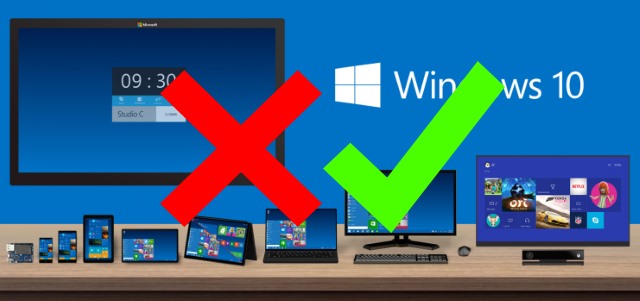
The curmudgeon's guide to Microsoft's embryonic Windows 10
It's only a matter of days since Microsoft officially revealed the Windows 10 Technical Preview. This was a revelation with a lot riding on it but it was really something of a tease -- Microsoft didn’t give too much away. We rushed to grab the download, and Wayne showed how to get it up and running in VirtualBox (interestingly, I had to opt for VMware Player, as VirtualBox refused to install the 64-bit version of Windows 10 on my Surface Pro. It ran away from the ISO as though it was infected with ebola). I've had a few days to play about with this release -- I've stuck with a virtual machine for now rather than going all-in with dual-boot -- and I've already had a chance to write a little about the Start menu and the command prompt, but now it's time to delve a little deeper and see what else there is to discover.
Spoiler alert: despite the headline, and indeed my reputation, I don’t hate Windows 10. It just about goes without saying that I'm not head-over-heels in love with it, and there's a great deal I dislike about it, but it does feel... well, just 'nice' really. It's comfortable, familiar, and feels a bit snappier than Windows 8 -- even when running in a virtual machine.

Roman goblet used to boost optical storage
Ancient Roman glassware housed in the British Museum is at the heart of new research into expanding the storage capabilities of optical storage devices.
The Lycurgus cup, a goblet made in the 4th century during the Roman Empire, incorporates gold-silver alloyed nanoparticles into glass and changes color from green to red when light passes through it.

Just how effective are parental control products?
Parents are keen to ensure that their offspring don't access inappropriate material on the web and for that reason most security software providers now offer parental control products, whether as a standalone product or part of an internet security package.
In a study commissioned for a German magazine, AV-Comparatives has looked at the leading products for Windows and mobile platforms to assess which are the most effective.

Sorry Linux fans, Windows 10 will continue Microsoft's desktop domination
I'll admit, when Windows 8 was first announced, I hated it. Even though I am open-minded about UI changes, the Start Screen rubbed me the wrong way. At the time, I was strictly a keyboard and mouse user, who enjoyed doing things on a large monitor. After months of trying to convince myself that I would eventually like the changes, I gave up and went to Linux full time. I was already a casual user of operating systems based on the open-source kernel, but now I was jumping in head first.
Initially, life was great and I hopped from distribution to distribution trying Ubuntu, Mint, Fedora and many more. What was cool about these Linux-based desktop operating systems, was that I could choose the environment of my liking. In other words, if I didn't like the UI, I could easily switch. This was in stark contrast to Windows, which has a take it or leave it approach. Ultimately, I decided on Fedora and the GNOME 3 environment. This surprised me, because as a lifelong Windows user, I expected to gravitate towards KDE. Over time though, something strange happened -- I went back to Windows 8.
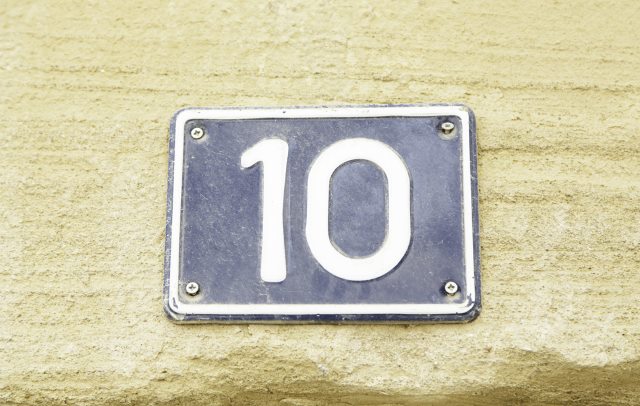
With Windows 10, Microsoft leaves lots of questions unanswered
So… we now know that Windows 9 is by far the least successful version of Windows ever, grossing Microsoft a total of $0. But Microsoft is as keen as ever to look to the future, and it's pinning its hopes on the newly revealed Windows 10. At the unveiling in San Francisco we learned quite a lot about the upcoming version of the successor to Windows 8.1 (yep... it's going to sound weird for a long time), but there were also a lot of unanswered questions. It was interesting to see that the demonstration used build 9841 which we have already seen in leak, and in this regard there were few surprises. Between the release of Windows 10 Technical Preview Microsoft still has a lot of work to do, and a lot of people to convince to upgrade.
What do we not yet know? We don’t have a release date, at least nothing that has been pinned down. We know it will be some time in the second half of 2015 -- if everything goes to plan -- but that's quite a big Window. We also don’t know what costs, if any, might be associated with the operating system. It has been suggested that Microsoft would make Windows 10 available free of charge, but nothing official has been said on this front. We have no idea what sort of upgrade path may be available -- would this be Microsoft's opportunity to usher everyone away from Windows XP once and for all? Simply offer a free upgrade to an operating system that addresses the issues users have raised and the security problems associated with an ancient version of Windows should diminish.

There is no escape -- with Atlas, Facebook ads follow you between devices
How much do you hate ads? How much do ads piss you off? Well prepare to turn into an even bigger ball of hate-filled pissed-off-ness when you hear about Facebook's latest ventures in advertising. Few people would argue against the suggestion that Facebook has all but given up any pretence of being a social network and has become little more than a huge cog in a massive advertising machine. Claims have been made that ads are being made more relevant to users, but the truth of the matter is that users are being made more relevant to advertisers. And Facebook now has a whole new way to follow you around the web to make sure you are delivered even more better-targeted ads.
Facebook has been criticized for forcing users to reveal their real names -- information which is as valuable to advertisers as it is anything to do with security -- and there have long been concerns about privacy settings on the site. Users of Facebook may complain that their newsfeeds are cluttered with news and posts at the wrong time, but one of the biggest issues people have with the site is with ad delivery. Last week we learned that Facebook was on the verge of revealing something "more powerful than what Google can currently do" in terms of user tracking. Facebook has now launched Atlas, an ad platform that can track users as they move from desktop to mobile devices -- and it's sure to raise plenty of privacy hackles.
Google sets sights on Apple and Microsoft -- brings Adobe Photoshop to Chromebooks
Google is trying to grow its budding operating system platform, continually updating and enhancing features. Customers can now work in certain environments offline, for instance. But what lacked was some of the core features of rivals Windows and OS X. However, that slowly changes as well.
Photo editing, for instance, was one feature that, while not absent, certainly wasn't top of the line. Until now you had to rely on an app such as Pixlr, which many Chromebook customers use. But Google today announces that Photoshop is arriving, though not (at least yet) offline.

Shellshock bug is bad and could take years to eradicate say experts
Ever since yesterday’s news of the Shellshock Bash bug broke cyber security experts have been lining up to make clear how bad it really is.
Unlike Heartbleed, which affected mainly servers, Shellshock leaves a whole host of systems vulnerable including Apple OSX systems and many internet of things devices with embedded code that’s based on Unix or Linux.

How to get an extra 15 GB of OneDrive storage for free
There is plenty of competition in the cloud storage space, but, unfortunately, for the most part any massive changes are limited to paid plans. They get bigger, they get cheaper, but the free tier, which most users get first, remains largely as limiting as it has always been. Sure, we get a couple of extra gigs for free here and there, but it's all smoke after all, meant to lead us right to the money grabbers. (And who could blame providers for trying to make money?)
Now, Microsoft is doing something rather interesting, as it gives OneDrive users nearly twice as much storage in the free plan, bumping the limit from a so-so 15 GB to a respectable 30 GB. The reason? Well, it's a damn clever one -- the extra freebie is meant to help Apple users who are having trouble with iOS 8 upgrades due to low available storage. Because this is an oft-discussed issue, it is bound to generate some free advertising for Microsoft and OneDrive.
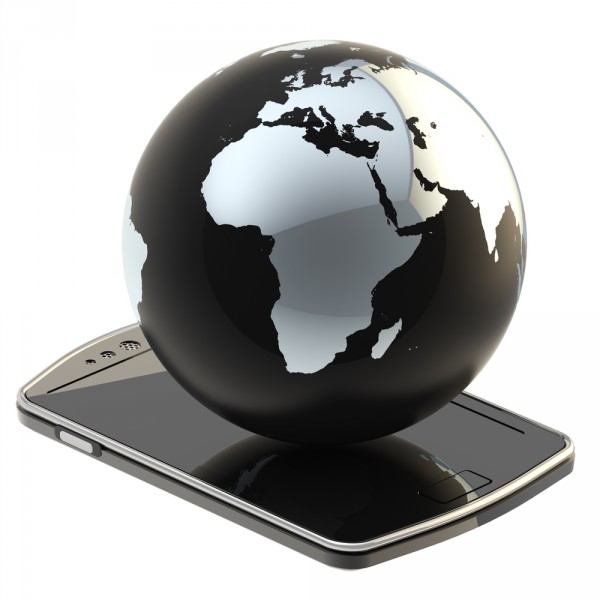
Smartphone market share and usage by country
With the arrival of the iPhone 6 (and 6 Plus), this may be a good time to review smartphone market share and usage share trends around the world. As these data points reflect the tail end of the iPhone's product cycle, we should expect a market share bounce over the coming months. On the other hand, movements in usage share are unlikely to be as sharp.
As always, market share data is sourced from Kantar and usage share data is from Statcounter. My rationale for using these particular metrics was laid out in my last post on the topic:
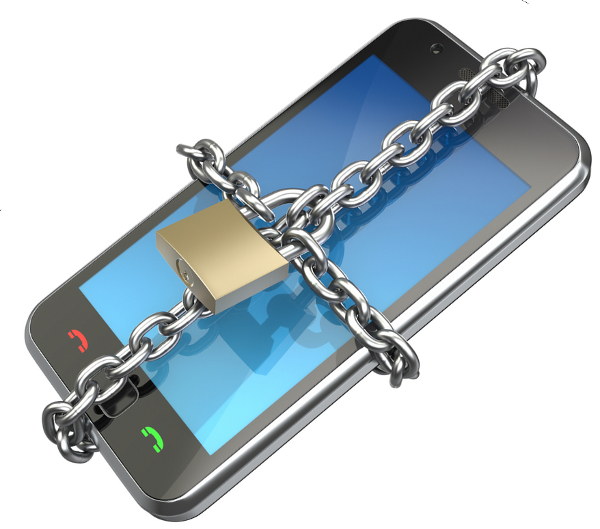
Google: Android L turns data encryption on by default
Turning on data encryption can make a huge difference in case your Android device is lost or stolen, as it will make it extremely difficult -- if not impossible -- for a third-party to access your files. It also gives you quite a bit of time to remotely wipe your device, which means that your photos, videos, texts and whatnot have a better chance of remaining private.
And if the local authorities want to take a peek, they are also out of luck -- it's good news for those involved in criminal enterprises, and others as well. All this sounds great from a privacy and security standpoint, except that encryption has never been enabled by default in Android. But that is soon about to change.
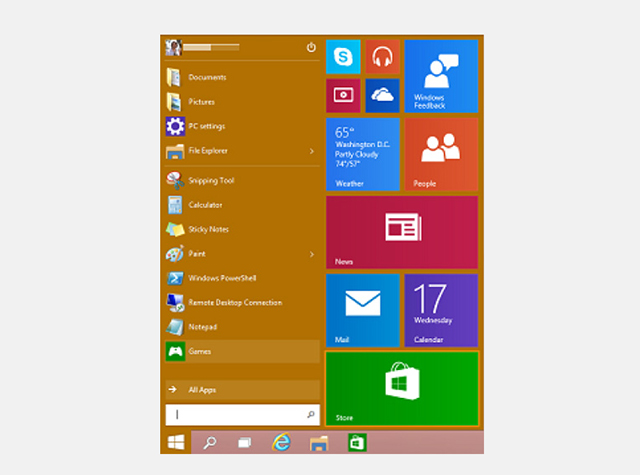
Windows 9 build 9841 screenshots and details leak
Last week we had leaked screenshots and even videos from Windows 9 build 9834, and now new screens have appeared from build 9841, or what might well be very close to the actual Technical Preview.
Whereas all the leaks last week came from WinFuture.de, these new screens come from WinSuperSite.com, which also has information on the Start menu (naturally), apps, files, personalization and more. One of the new things we learn is that anyone trying out the preview build will be able to provide feedback directly to Microsoft through a Feedback app. There can be no accusations of Microsoft not listening to customers this time around!
